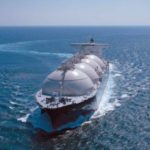BP Midstream sees offshore volumes dip from COVID-19 outbreaks

BP Midstream saw its offshore oil and gas volumes fall by 8% in the second quarter because of heightened worker precautions and COVID-19 outbreaks on deepwater platforms rather than from the oil demand loss triggered by the pandemic, the company said Aug. 6.
Although some smaller offshore platforms were shut in for economic reasons, most of the volume declines in the Gulf of Mexico came from staffing and maintenance issues, as well as a temporary dip in June when Tropical Storm Cristobal moved through the Gulf.
BP Midstream CEO Rip Zinsmeister said on an earnings call the energy sector is now a “different world” offshore because of the pandemic, which has created multiple outbreaks on offshore platforms around the world, including in the US Gulf, Mexico and Brazil.
“Offshore is really about COVID and staffing,” Zinsmeister said. “You have to make sure you have clean crews and clean contractor crews with COVID.”
BP Midstream’s overall throughput volumes fell by an average of 10% in the second quarter, including a 14% dip from onshore pipelines caused by the sharp decline in crude demand.
However, Zinsmeister argued that BP’s resilient Whiting Refinery in Indiana kept its onshore pipeline systems running relatively smoothly in the Midwest, especially as demand has recovered somewhat since May.
“We’re blessed with an advantaged asset in Whiting,” he said, noting still that, “It’s been a very choppy market.”
In most cases, volumes have run steadily above minimum-volume commitments, according to BP Midstream, but some weaker Canadian crude pricing differentials meant that MVC payments have kicked in at times on its BP2 crude pipeline system.
Back offshore, BP Midstream agreed with Shell Midstream’s earlier estimate that an expansion of the offshore Mars pipeline system remains on track. BP Midstream owns a 28.5% stake in the Mars system.
While some customer contracting issues are still being finalized, Shell and BP plan to complete the expansion next year, in advance of Shell’s new Vito development and its PowerNap subsea tieback project.
The Mars expansion would add about 65,000 b/d of capacity to the pipeline system that currently can move up to 600,000 b/d to Louisiana. The expansion is primarily coming from new pumps and pipeline optimization efforts.
Source: Platts

 Hellenic Shipping News Worldwide Hellenic Shipping News Worldwide, Online Daily Newspaper on Hellenic and International Shipping
Hellenic Shipping News Worldwide Hellenic Shipping News Worldwide, Online Daily Newspaper on Hellenic and International Shipping






















 PG-Software
PG-Software